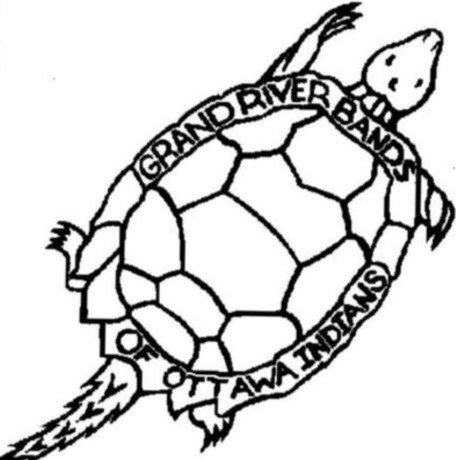GRAND RAPIDS, Mich. — Michigan’s two U.S. Senators and the chair of the House Natural Resources Committee are calling on the Department of the Interior to act on the Grand River Bands of Ottawa Indians’ petition for federal acknowledgment.

Sens. Debbie Stabenow and Gary Peters, both Democrats, sent a letter to Interior Secretary Deb Haaland on Nov. 15, urging the department “to complete its review and issue proposed findings” on the tribe’s petition after a decades-long delay.
The 600-member Grand River Bands began the process for federal recognition in 1994. The Office of Federal Acknowledgement within the Bureau of Indian Affairs has been actively considering the tribe’s petition since 2013. In April 2020, the OFA suspended the process, citing the COVID-19 pandemic.
Want more news like this? Get the free weekly newsletter.
“The COVID-19 crisis has undoubtedly placed a significant strain on Departmental resources, but it is also true that the Native American communities have been disproportionally affected by the global pandemic’s impact on public health and the economy,” Peters and Stabenow wrote in the Nov. 15 letter.
“The Department of Interior’s lack of urgency in issuing a determination on federal recognition potentially hinders Grand River Bands’ ability to access vital resources such as health services for tribal members and federal grants to promote self-sufficiency. The members and leadership of the Grand River Band deserve a fair and timely determination on federal recognition.”
Earlier this month, U.S. Rep. Raúl M. Grijalva, the chair of the House Natural Resources Committee, which includes the Subcommittee on Indigenous Peoples of the United States and has purview over Indian Country matters, also called on Interior to issue findings on the tribe’s petition.
In a Nov. 5 letter to the department, Grijalva noted the BIA said in 2013 that it expected the process to take 18 months before it would issue proposed findings on the petition from the Grand River Bands, whose ancestors had official relationships with the federal government dating back at least to the 1795 Treaty of Greenville.
“While the federal acknowledgment process can be lengthy even under the best circumstances, Grand River has experienced extraordinary delays without substantial explanations from the Department. Therefore, I respectfully request that OFA issue a proposed finding on Grand River’s petition by the end of this year,” Grijalva wrote.
As well, Grijalva noted that Congress in 1994 recognized two other Michigan-based tribes — the Little River Band of Ottawa Indians and the Little Traverse Bay Bands of Odawa Indians — “whose histories are virtually identical to that of Grand River.” Congress also “acknowledged the claims of the Grand River Bands” in the 1997 Michigan Indian Land Claims Settlement Act, which set aside funding for “newly recognized or reaffirmed tribes” for a period of 11 years.
Because the OFA has dragged out the process of issuing a finding on the Grand River Bands’ petition, the tribe has missed out on those funds, as well as other pots of federal dollars for health care, housing and tuition assistance.
U.S. Rep. Bill Huizenga, a Republican representing portions of the tribe’s ancestral territory in West Michigan, cited those lost funding opportunities and the delays as evidence that “the tribe’s rights are slowly being eviscerated” in a September 2020 letter he sent to Haaland’s predecessor, former Interior Secretary David Bernhardt.
In a statement, Grand River Bands Chairman Ron Yob said the drawn-out process “has hindered our ability to use resources that federally recognized tribes are given.” He said the federal government’s inaction “has been to the detriment of our tribal members.”
Previously, the Grand River Bands sought a legislative route to recognition similar to the Little River and Little Traverse Bay tribes, but the most recent process died in 2007 in the Senate Committee on Indian Affairs. (Using the legislative recognition process has fallen in and out of favor over the years. However, the Senate Committee on Indian Affairs this week held hearings on a bill that would recognize the Lumbee Tribe of North Carolina.)
In a July report from regional business publication MiBiz, Yob said the legislative rought “might be an option back again” for the tribe if the OFA continues to delay issuing its findings.
The OFA, which weighs whether tribes meet the seven mandatory criteria for federal recognition, is currently considering the petitions of five tribes, according to its website.
For his part, Yob said the tribe is pressing ahead to pave the way for future generations to have the support and resources they deserve.
“We’re a turtle clan, and that’s our totem,” Yob told MiBiz in July. “They hibernate for four or five months a year, and then all of a sudden, they’re back to life. I think we’re going to come out of that hibernation stage, and we will take off again.”
